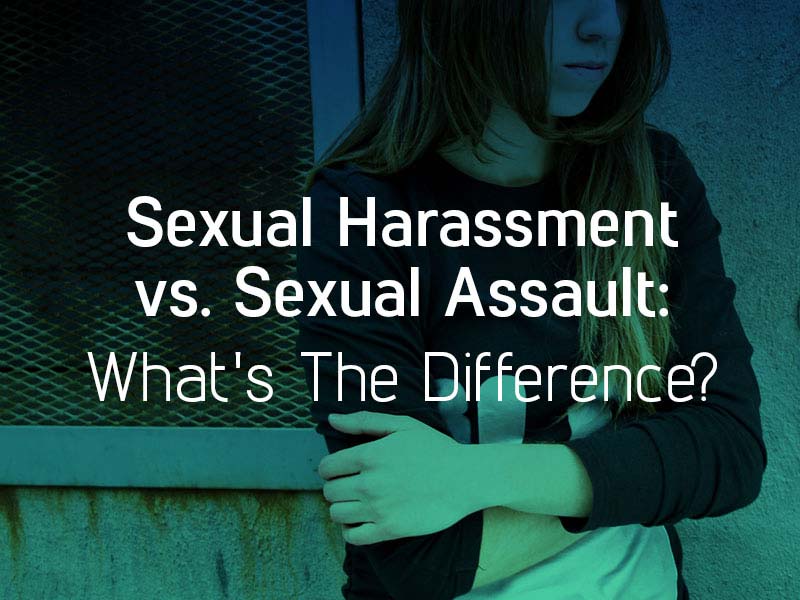Sexual violence is a pervasive issue across the United States and around the world and can come in a number of forms. Sexual assault and sexual harassment are two common types of sexual violence, and both can lead to significant trauma to the survivor. However, sexual assault and sexual harassment differ in a number of ways – and can often occur hand in hand.
What Is Sexual Harassment?
Sexual harassment occurs when someone acts inappropriately toward you without your consent. It can encompass a number of different behaviors, including verbal, physical, and cyber harassment. The perpetrator of the harassment does not need to target you or another person specifically for the action to be an instance of sexual harassment; sexual comments or negative comments about a specific group could also be sexual harassment.
Anyone can commit this act, including men, women, supervisors, coworkers, teachers, colleagues, or peers. Any of the following behaviors or actions can be an instance of sexual harassment.
-
- Requests for sexual favors
- Unwanted sexual advances or physical contact
- Acts of physical sexual assault
- Verbal harassment that involves sexual topics, including sexual acts, gender identity, or sexual orientation
- Attempting to exchange sexual favors for career advancement or employment
- Sending sexually explicit emails, texts, or photos
- Discussing sex in an inappropriate setting, such as work or school
- Coercing someone into sexual contact
- Indecent exposure
What Is Sexual Assault?
Sexual harassment is a very broad term and can involve a number of different actions, including sexual assault. While sexual assault may be a form of sexual harassment, it is a very specific type of unwanted sexual contact and behavior.
Sexual assault is usually physical in nature and involves any sexual contact that occurs without your consent. Consent refers to your free and informed agreement to the sexual activity – the perpetrator cannot coerce, force, or trick you into giving consent. In addition, you cannot consent to sexual activity if you are asleep, extremely intoxicated, under the age of consent, or mentally or physically incapable of giving it.
Any of the following actions could be an instance of sexual assault.
- Forced penetration, also known as rape, and attempted rape
- Unwanted sexual touching
- Forcing the victim to engage in other sexual acts, such as oral sex
Your Legal Options After Sexual Harassment and Assault
Generally, acts of sexual harassment fall under civil laws and break workplace policies. You could file a lawsuit against the perpetrator, launch a complaint at work, and pursue civil action through your state court. Not all instances of sexual harassment are crimes.
However, sexual assault is a crime. You have the right to file both civil and criminal charges against a perpetrator for sexual assault. This means you can seek criminal remedies, such as jail time, fines, and administrative penalties through your state’s criminal court, and launch a separate civil lawsuit to collect compensation for the damages you suffered.
You can collect many types of damages in sexual harassment and sexual assault civil lawsuits, both economic and non-economic, as well as punitive damages for, especially reckless or dangerous actions. Economic damages refer to the tangible financial losses you suffered after the incident, while non-economic damages usually encompass the more emotional impacts.
Some examples of damages you can collect in your lawsuit include the following.
- Past and future medical expenses for physical and emotional injuries
- Therapy costs
- Medication to treat conditions that resulted from the assault or harassment
- Emotional anguish
- Loss of quality of life
- Lost wages if you had to leave work because of the assault or harassment or to escape your perpetrator
- Post-traumatic stress disorder
- Anxiety and depression
While sexual harassment and sexual assault may have some key differences, they do share some crucial similarities as well. Both acts of sexual violence can lead to serious emotional and physical trauma, and create lasting repercussions for the survivor. If you are a survivor of sexual assault or harassment, you are not alone. Contact a sexual assault lawyer who specializes in supporting sexual violence survivors to discuss your pathways to justice.

